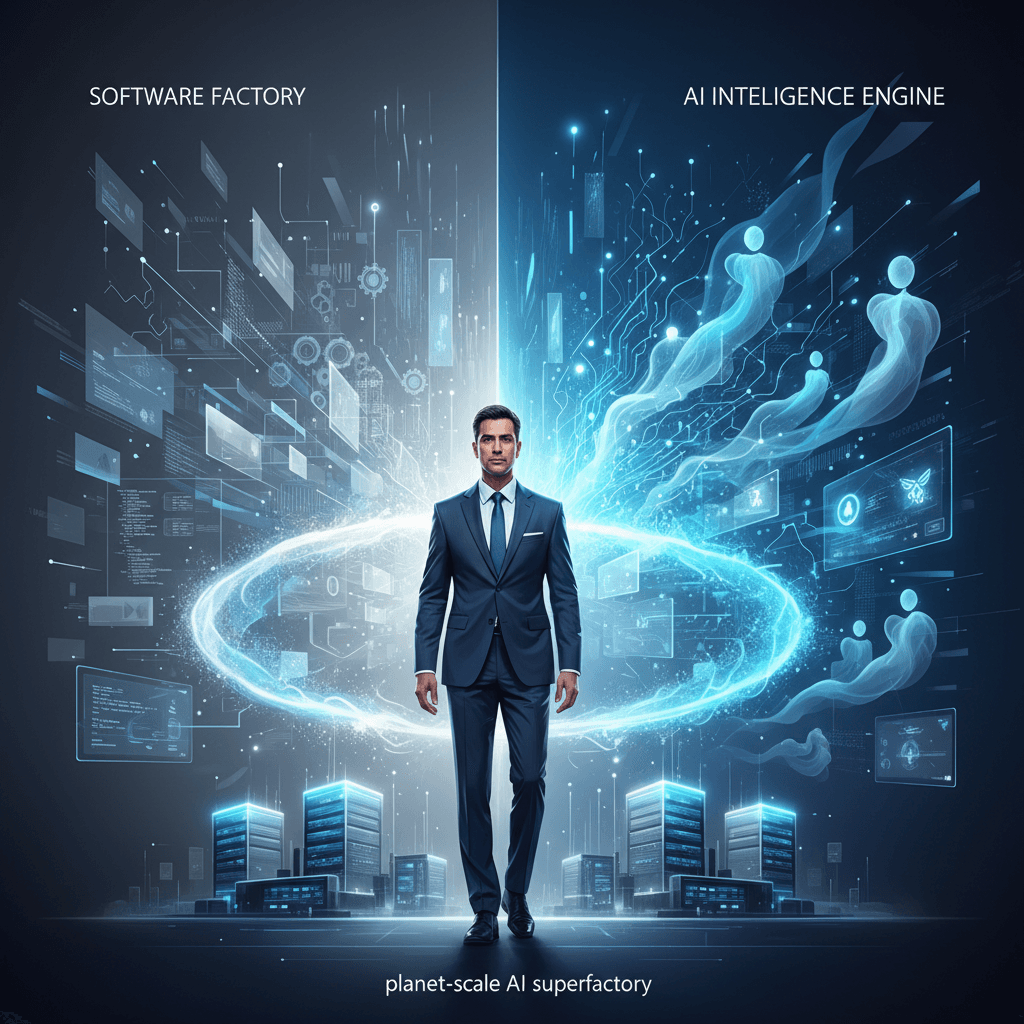Nadella Steers Microsoft From Software Factory to AI Intelligence Engine
Nadella redefines Microsoft as an AI-first 'intelligence engine,' investing billions and fostering a 'learn-it-all' culture.
November 16, 2025

Microsoft CEO Satya Nadella is steering the technology giant into what he has termed a new era, promising a fundamental transformation of the company's identity and mission. The declaration signals a profound shift from Microsoft's legacy as a "software factory" to a future as an "intelligence engine," a move that redefines its core business and has significant implications for the entire technology industry. This transition is not merely a change in product strategy but a comprehensive reimagining of every layer of the company, from its cloud infrastructure to its flagship applications, all centered on the transformative power of artificial intelligence.[1][2]
At the heart of this new Microsoft is an all-encompassing focus on AI. Nadella has articulated a vision where AI is not just a feature but the foundational element of the company's future.[3][4] This strategy involves embedding AI, primarily through its Copilot technology, across the entire Microsoft product ecosystem.[4] From Windows and the Office suite to its enterprise software, the goal is to make AI an omnipresent assistant, automating tasks, generating insights, and redefining productivity.[3][5] Nadella has stated that the aim is to move beyond creating tools for specific tasks and instead empower all users to create their own tools, effectively democratizing AI.[1][2] This shift is underpinned by a deep, strategic partnership with OpenAI, whose models are integral to many of Microsoft's AI services, positioning the company as a leading seller of cloud-based AI services on its Azure platform.[6]
To power this ambitious AI-first future, Microsoft is undertaking a monumental investment in its global infrastructure. The company is spending billions of dollars on data centers and GPUs, creating what it calls the world's first "planet-scale AI superfactory."[7] This initiative involves linking massive data centers with high-speed networks to function as a single, unified computing complex designed specifically for the enormous demands of large-scale AI models.[7] This infrastructure is not built around a single AI model lineage but is designed to be a flexible, multi-model fleet capable of adapting to rapid breakthroughs in AI technology.[8] Nadella has articulated that the long-term value in the AI era will not lie with any single breakthrough model, which he warns could be commoditized, but with the foundational infrastructure that enables these models to operate securely and at scale.[8] This positions Microsoft's core business as the essential infrastructure provider for a future increasingly reliant on AI agents.[8]
This technological and strategic overhaul is accompanied by a deep cultural transformation that Nadella has been cultivating since he became CEO. He has worked to shift the company from a "know-it-all" culture to a "learn-it-all" culture, emphasizing empathy, collaboration, and a growth mindset.[9][10][11] This philosophical change is seen as a prerequisite for sustained innovation in the fast-evolving AI landscape.[10] The focus is on fostering an environment where employees are empowered to learn, adapt, and innovate without fear of failure.[10] By breaking down internal silos and championing inclusivity, the company aims to better reflect the diversity of its global customers and attract the talent needed to compete in the age of AI.[9][11] This cultural shift is the bedrock upon which the technological ambitions for a new Microsoft are being built.
In conclusion, Satya Nadella's promise of a completely new Microsoft represents the culmination of a multi-year transformation, now accelerating into a decisive and permanent new identity. By betting the company's future on the pervasive integration of artificial intelligence, supported by unprecedented infrastructure investments and a revitalized corporate culture, Microsoft is fundamentally altering its DNA. The company is moving beyond its historical dominance in operating systems and productivity software to become a foundational "intelligence engine" for the AI era. This strategic pivot is not just about launching new products but about reshaping how individuals and organizations will interact with technology, creating a future where intelligent agents and AI-powered creativity are accessible to all. The success of this transformation will undoubtedly be a defining narrative in the technology industry for years to come.